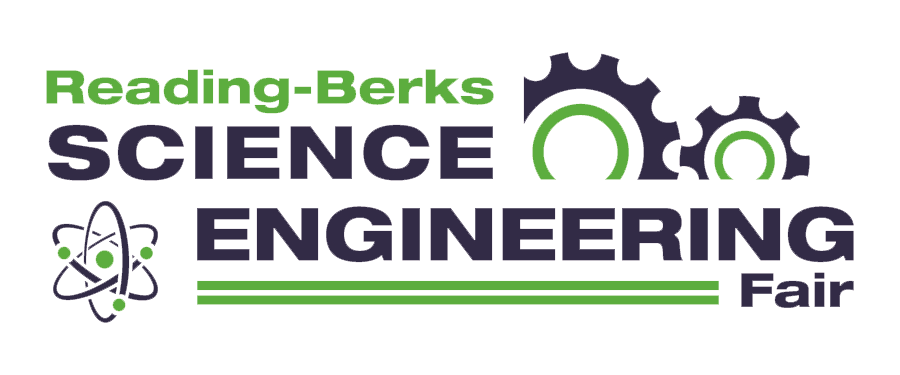Fair Information
Science Fair Week-Daily Activities
Monday-6pm-8pm Project Set-Up
- Be sure your project is labeled with your project number. The project number is found with your project information in STEMWizard.
- Remember to check what is not allowed in the science fair before you bring your project to the science fair.
- Bring your project to the Albright College Bollman Gymnasium.
- Parking is on 13th St. and on parking lot next to the gym.
- Set up your tri-fold board at the location labeled with your project number.
- A Safety Checklist will be at your project station. Fill in the checklist and ensure you can say “yes” to all the questions. Drop the checklist into the box labeled “Completed Safety Checklists” at the registration table on your way out.
- If you have any questions about items on the checklist you may ask any safety inspector on the floor your safety question. Safety inspectors will be wearing fluorescent RBSEF green vest.
Tuesday-1pm-3pm Student Interview Session
- Your school will arrange to bring you to the Albright College Gym for student interviews.
- It is important to keep as quiet as possible while waiting in the bleachers during the interview session so that judges can hear the students being interviewed.
- Be sure you know your project number and listen carefully for it to be called. Because it would be too crowded to have all students on the floor at all times, projects are called down to the floor in batches.
- Depending on the type of awards you are eligible for, you may be interviewed multiple times, and not all awards require interviews. There are several interview judges involved: category judges, special awards judges, and a fair-staff judges.
Thursday-6:00pm-9:00pm Awards Ceremony (location TBD)
Over $10,000 in special awards will be given out to deserving students at the ceremony. After the special awards the place awards for each category will be given out. At the end of the ceremony the champions of grade 6, 7 and 8 will be announced and finally the senior division Grand Champion, Champion and Reserve Champion will be announced. The champions receive plaques for their awards. The Grand Champion and Champion of the senior division (gr. 9-12) will receive an all expense paid trip to compete in the International Science and Engineering Fair (ISEF) in May. Note: if you cannot attend the awards ceremony you can pick up your award Friday morning before 8:30 am, or you will have to make arrangements with your Teacher-Sponsor.
Project Removal
Thursday from 8:00am-4:00pm (before award ceremony)
Thursday after 9:00pm (after award ceremony)
Friday 7:00am-8:30am
- Come to the Bollman Gymnasium to remove your project from the gym.
- Someone else can remove your project if you a cannot do it.
- We recommend you pick up your projects after the award ceremony, but we understand if you cannot come to the ceremony, so you have an option to pick it up earlier in the day Thursday as indicated above.
- Projects not removed will be discarded after 8:30am Friday.
RBSEF Required Forms
- All students complete Form 1: Checklist for Adult Sponsor
- All students complete Form 1B: Approval Form
- Form 1, item number 4 provides a list of project content that requires PRIOR approval by an Internal Review Board (for Junior Division Projects).
- If the project involves vertebrate animals, humans, fungi, microbes (bacteria), recombinant DNA, or tissue cultures, an IRB must review the plan for the project and ensure that safety protocols are being met.
- An IRB member completes box 2a of Form 1B.
- Students are clear to proceed with the project once the IRB has approved it.
- If the project does not involve items in number 4 (projects dealing with vertebrate animals, some human experiments, fungi, microbes, recombinant DNA, or tissue cultures) of Form 1, no other paperwork is required.
2. Senior Division Forms: Grades 9-12
- All students complete Form 1: Checklist for Adult Sponsor
- All students complete Form 1A: Student Checklist (numbers 10 Research Plan and 11 Abstract are optional and not required for this fair, use of estimated dates is ok)
- All students complete Form 1B: Approval Form
- If any items from line 4 on Form 1, (projects dealing with vertebrate animals, some human experiments, fungi, microbes, recombinant DNA and tissue cultures) are part of the project, additional forms may be required.
- Use the ISEF Rules Wizard to help you determine which forms to use.
Categories and Descriptions
Junior Division: Grades 6-8
Natural Science –
Separate judging categories for grades 6, 7, and 8
Physical Science –
Separate judging categories for grades 6, 7, and 8
Physical Science categories include projects involving the study of nonliving matter and energy to include astronomy, chemistry, electricity, heat, light, magnetism and sound.
Senior Division: Grades 9-12
These descriptions are intended to be guidelines for selection of a category for entry into the Reading-Berks Science and Engineering Fair. Please read each description to help you make a decision on which category to enter your project. They represent a sampling of potential topics. Please contact the Fair Director if you require help selecting a category for your project.
Botany
Behavioral and Social Sciences
Chemistry
Earth and the Environment
Engineering
Mathematics and
Computer Science
Math is the study of numbers, quantities, shapes and the relationships between them. Computer science is the study of the principles and use of computers. Math may include algebra, geometry, number theory, probability and statistics. Computer science includes the design, development and application of computer hardware and software.
Zoology
These descriptions are intended to be guidelines for selection of a category for entry into the Reading-Berks Science and Engineering Fair. They represent a sampling of potential topics. Please contact the Fair Director if you require help selecting a category for your project.
